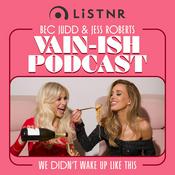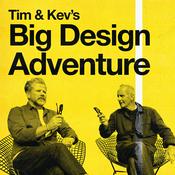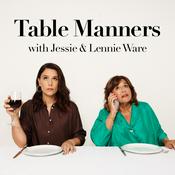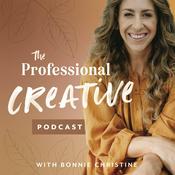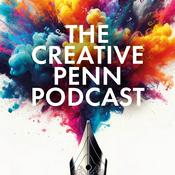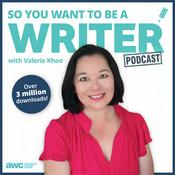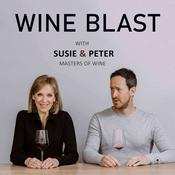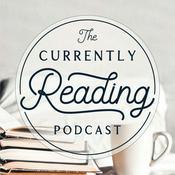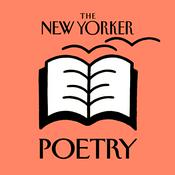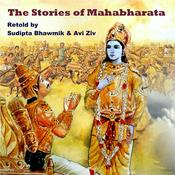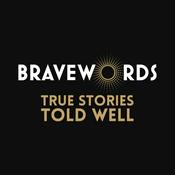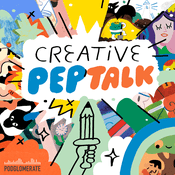251 episodes
- Learn the 5 key elements every scene needs to move your story forward and keep readers turning pages.
Scene structure doesn't have to be complicated. Sure, there are many methods out there, such as Story Grid's Five Commandments, Dwight Swain's Scene and Sequel, and James Scott Bell's LOCK system. And if you've tried learning from more than one method, it can feel like everyone's teaching something completely different.
But the truth is, they're actually not. Because when you strip away the terminology, they're all pointing to the same core ideas.
In this episode, I'm breaking down those five core elements—the ones hiding inside every scene structure method you've ever heard of. Once you understand what they are, you can stop guessing and start writing scenes that actually move your story forward.
You’ll hear me talk about things like:
[05:18] Why your character needs a clear goal before the scene begins, and why it's so hard to fix later if you skip it.
[07:01] What separates real conflict from obstacles, and why your scene antagonist needs their own agenda.
[10:41] What actually creates a turning point in a scene, and why piling on tension alone won't get you there.
[12:39] Why your POV character must be the one making a high-stakes decision, and the reason reader investment dips when someone else chooses for them.
[15:55] The consequences that follow your character's decision and how their specific reaction creates momentum in your next scene.
By the end of this episode, you'll have a clear framework you can apply to any scene you're writing or revising. And you can grab my free scene-structure guide from the links below to start applying it right away.
🔗 Links mentioned in this episode:
Click here to download the Scene Guide to write scenes that keep your readers glued to the page.
⭐ Follow & Review
If you loved this episode, please take a moment to follow the show and leave a review on Apple Podcasts! Your review will help other writers find this podcast and get the insights they need to finish their books. Thanks for tuning in to The Fiction Writing Made Easy Podcast! See you next week!
Support the show
👉 Looking for a transcript? If you’re listening on Apple Podcasts or Spotify, scroll down below the episode player until you see the transcript. - Master the 8 Habits of Mind to build a sustainable, joyful writing practice that helps you finish your book without burnout or self-sabotage.
Building a writing practice shouldn't feel like pushing a boulder uphill. But so many writers get stuck dealing with imposter syndrome, fighting writer's block, and wondering why their routine keeps falling apart.
That’s why in this episode, I sit down with Dr. Bailey Lang, a book coach, editor, and writer who specializes in helping authors build sustainable writing practices that actually work with their lives. With a background in Rhetoric and Writing Studies, she has spent years researching how writers get work done and what gets in the way.
Today, Dr. Bailey Lang shares the 8 Habits of Mind: curiosity, openness, engagement, creativity, persistence, responsibility, flexibility, and metacognition. These habits extend beyond managing impostor syndrome. They help you proactively create a writing practice that actually sticks.
Here's what we cover:
[06:49] How openness helps you experiment with your writing practice and find inspiration in unexpected places without forcing yourself into routines that don't fit.
[09:35] Why persistence is the habit Dr. Bailey Lang works on most with writers, and how to stick with your story during the messy middle when everything feels hard.
[13:31] The surprising resistance writers have to flexibility, and why rigid writing streaks might be sabotaging your practice instead of helping it.
[17:10] How to actually implement these writing habits without overwhelming yourself—starting with one habit, tracking it, and running small experiments.
[26:50] Why stories are the truest form of magic, and how these habits give you permission to tell the story you're meant to write.
Whether you're stuck, burnt out, or your writing practice isn't working the way you want it to, this episode will help you build a foundation that makes finishing your book feel possible and even enjoyable.
🔗 Links mentioned in this episode:
Dr. Bailey Lang Website
Free email series: Learn the 8 habits of mind that can unlock your creativity and help you take your book from draft to done.
5 Writing Roadblocks Keeping You Stuck & How to Break Through
⭐ Follow & Review
If you loved this episode, please take a moment to follow the show and leave a review on Apple Podcasts! Your review will help other writers find this podcast and get the insights they need to finish their books. Thanks for tuning in to The Fiction Writing Made Easy Podcast! See you next week!
Support the show
👉 Looking for a transcript? If you’re listening on Apple Podcasts or Spotify, scroll down below the episode player until you see the transcript. - Master the art of writing natural-sounding dialogue by learning how to remove unnecessary lines, shape distinct character voices, and write conversations that feel purposeful on the page.
If your dialogue feels stiff or flat, even when the conversation itself seems clear, there’s usually a specific reason for that.
And it's not because you're bad at dialogue.
In most cases, it comes down to a few subtle craft issues that quietly pull readers out of the scene, even when the conversation itself seems realistic.
That's why in this episode, I’m breaking down five secrets that help your dialogue sound natural without copying real-life speech word-for-word.
You'll learn how to spot what's weakening your dialogue and how to revise conversations so they're clearer, tighter, and more effective on the page.
In the episode, you’ll hear me talk about things like:
[02:02] The easy-to-miss dialogue habit that feels realistic but quietly drains tension, and why cutting it can immediately sharpen a scene.
[03:56] Why natural-sounding dialogue has little to do with real conversation, and what readers are actually expecting when they read a scene.
[06:06] The subtle reason conversations can feel like talking heads and how to anchor dialogue so scenes feel present and alive.
[09:03] A simple test that reveals whether your characters truly sound different or if they're all sharing the same voice on the page.
[11:09] What powerful dialogue rarely says outright, and how what's left unsaid keeps readers leaning in.
If dialogue has been one of those craft areas that feels slippery or hard to pin down, this episode will help you see it more clearly and revise with confidence instead of guesswork. Enjoy the episode!
🔗 Links mentioned in this episode:
10 Steps To Editing Your Novel
Take Author Success Quiz
⭐ Follow & Review
If you loved this episode, please take a moment to follow the show and leave a review on Apple Podcasts! Your review will help other writers find this podcast and get the insights they need to finish their books. Thanks for tuning in to The Fiction Writing Made Easy Podcast! See you next week!
Support the show
👉 Looking for a transcript? If you’re listening on Apple Podcasts or Spotify, scroll down below the episode player until you see the transcript. - Discover the five craft techniques that make morally gray characters impossible to put down—so you can write complex, compelling figures readers will argue about, defend, and love despite everything.
Morally gray characters are some of the most memorable in fiction. Think Cersei Lannister (Game of Thrones), Kaz Brekker (Six of Crows), Severus Snape (Harry Potter), or Amy Dunne (Gone Girl). These are the characters readers can't stop thinking about long after the book is finished.
But what actually makes them work? It's not randomness or shock value. And it's definitely not just "bad person with a sad backstory." It's intentional craft.
In this episode, I'm breaking down five tips for writing morally gray characters that feel authentic, nuanced, and impossible to look away from—whether you're writing fantasy, thriller, romance, or any other genre.
You'll hear me talk about things like:
[02:45] What "morally gray" actually means and how it differs from the antihero—so you can stop conflating the two and start building true moral complexity.
[04:25] How to create a character worldview that justifies their actions, including the role of backstory, goals, and the personal code that reveals what they truly value.
[07:51] Why lose-lose dilemmas are essential for morally gray characters—and how to construct impossible choices that test your character and keep readers emotionally invested.
[10:05] The importance of letting your character make questionable choices with real consequences—and why softening the gray undermines everything you've built.
[12:50] How to keep readers invested in a morally gray character even when their choices are hard to stomach (hint: it's not about making them likable).
[14:54] The redemption arc trap most writers fall into—and why the best morally gray characters don't get "fixed" by the end of the story.
If you've ever struggled to write a complex antagonist, a flawed protagonist, or a love interest readers can't quite root for but can't look away from either, this episode will give you the tools to craft morally gray characters with confidence and intention.
🔗 Links mentioned in this episode:
Learn more about Notes To Novel
Take Author Success Quiz
⭐ Follow & Review
If you loved this episode, please take a moment to follow the show and leave a review on Apple Podcasts! Your review will help other writers find this podcast and get the insights they need to finish their books. Thanks for tuning in to The Fiction Writing Made Easy Podcast! See you next week!
Support the show
👉 Looking for a transcript? If you’re listening on Apple Podcasts or Spotify, scroll down below the episode player until you see the transcript. #231. Student Spotlight: 5 Lessons Learned from Notes to Novel (Season 7) - Part 2
22/01/2026 | 28 mins.Discover how five Notes to Novel students stopped guessing their way through drafts by planning and outlining their stories with a clear structure.
In this Student Spotlight episode, you’ll hear from five Notes to Novel students who entered the program actively writing, but couldn’t see why their drafts weren't working or how to fix them.
Each case study shows what changed once these writers had a clear process to follow—one that helped them turn their ideas into a story that works.
You’ll hear how confusion turned into clear decision-making, how outlines became practical tools for guiding the draft, and how stalled stories started moving forward once these writers understood what their stories actually needed.
Here’s what we cover:
[03:00] How Maggie moved from self-doubt and “am I even a real writer?” thinking to confidently outlining a rich fantasy novel with a clear antagonist and story direction.
[07:00] How John spiced up the middle of his story by strengthening stakes, side characters, and theme, and learned to treat his outline as a flexible, living document.
[12:00] How Insa rebuilt her women’s fiction novel by clarifying genre, layering conflict into every scene, and writing over 15,000 words in just days after finishing Notes To Novel.
[17:45] How Emily broke out of over-learning mode, found the missing middle of her story, and gained clarity on conflict, antagonists, and scene-level momentum.
[23:45] How Samantha uncovered the core misunderstanding holding her romance novels back and finally found a clear path to revising and finishing her draft.
Ready to finish your novel without second-guessing every word, sentence, or scene? Join Maggie, John, Insa, Emily, and Samantha, along with hundreds of other writers who've discovered that drafting doesn't have to feel hard. You just need the right roadmap.
Get on the waitlist for the next open enrollment of my Notes to Novel course and get my complete, step-by-step framework for writing a story that works. Doors open January 22nd until January 28th. Don't miss your chance to turn your ideas into a finished, easy-to-edit first draft you love.
🔗 Links mentioned in this episode:
Learn more about Notes to Novel
Maggie Rose Instagram
Emily S. Instagram
⭐ Follow & Review
If you loved this episode, please take a moment to follow the show and leave a review on Apple Podcasts! Your review will help other writers find this podcast and get the insights they need to finish their books. Thanks for tuning in to The Fiction Writing Made Easy Podcast! See you next week!
Support the show
👉 Looking for a transcript? If you’re listening on Apple Podcasts or Spotify, scroll down below the episode player until you see the transcript.
More Arts podcasts
Trending Arts podcasts
About Fiction Writing Made Easy | Top Creative Writing Podcast for Fiction Writers & Writing Tips
Fiction Writing Made Easy is your go-to podcast for practical, no-fluff tips on how to write, edit, and publish a novel—from first draft to finished book. Hosted by developmental editor and book coach Savannah Gilbo, this show breaks down the fiction writing process into clear, actionable steps so you can finally make progress on your manuscript.Whether you're a first-time author or a seasoned writer looking to sharpen your skills, each episode offers insights on novel writing, story structure, character development, world-building, editing, and publishing. Savannah also shares mindset tips, writing routines, and revision strategies to help you stay motivated and finish your novel with confidence.If you're asking these questions, you're in the right place:How do I write a novel without experience?What’s the best way to structure a story that works?How do I develop strong characters and build immersive worlds?How do I edit or revise my first draft?When is my book ready to publish?What are my self-publishing and traditional publishing options?New episodes drop weekly to help you write a novel you're proud of—and get it into readers’ hands.
Podcast websiteListen to Fiction Writing Made Easy | Top Creative Writing Podcast for Fiction Writers & Writing Tips, ill-advised by Bill Nighy and many other podcasts from around the world with the radio.net app
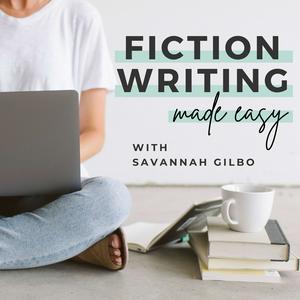
Get the free radio.net app
- Stations and podcasts to bookmark
- Stream via Wi-Fi or Bluetooth
- Supports Carplay & Android Auto
- Many other app features
Get the free radio.net app
- Stations and podcasts to bookmark
- Stream via Wi-Fi or Bluetooth
- Supports Carplay & Android Auto
- Many other app features


Fiction Writing Made Easy | Top Creative Writing Podcast for Fiction Writers & Writing Tips
Scan code,
download the app,
start listening.
download the app,
start listening.



